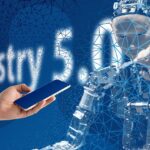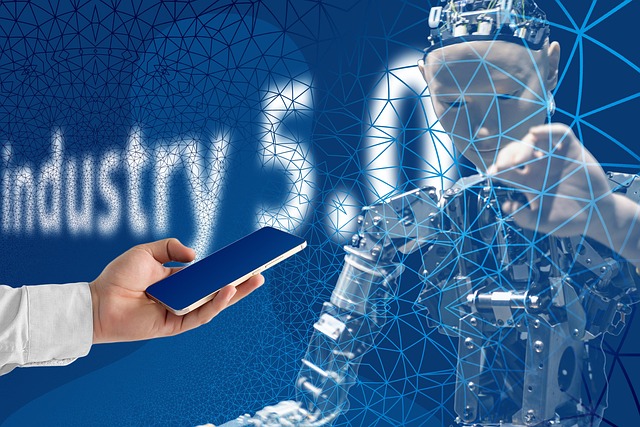# Navigating the Complex World of AI: Understanding Its Impact on Society and Future Innovations
Artificial Intelligence (AI) has transcended its initial role as a mere technological novelty to become a transformative force affecting various aspects of our daily lives. From healthcare to transportation, AI’s influence is profound and multifaceted. As society grapples with this rapid evolution, it becomes increasingly important to understand both the benefits and challenges that AI presents. This article delves into the societal impact of AI, its implications for future innovations, and the ethical considerations that accompany its integration into our lives.
## The Societal Impact of AI
AI’s integration into society has led to significant changes in how we work, communicate, and even think. One of the most notable effects is the automation of jobs across various sectors. Industries such as manufacturing, retail, and even professional services are experiencing a shift as AI systems take over repetitive tasks, enhancing efficiency and productivity. Consequently, this has raised concerns about job displacement and the future of the workforce. While some experts argue that AI will create new job opportunities, the transition may not be smooth for those whose skills are rendered obsolete.
Moreover, AI has revolutionized the way we interact with technology. Virtual assistants, chatbots, and recommendation algorithms have become commonplace, streamlining everyday tasks and enhancing user experiences. The convenience offered by AI-powered tools cannot be overstated; however, it also raises questions about dependency on technology. As people increasingly rely on AI for decision-making, there is a risk of diminishing critical thinking skills and personal agency.
In addition to reshaping employment and communication, AI is making significant strides in areas like healthcare. Machine learning algorithms can analyze vast datasets to identify patterns and predict health outcomes, leading to improved patient care and personalized treatment plans. For instance, AI-driven diagnostic tools have shown promise in detecting diseases such as cancer at earlier stages, potentially saving lives. Nevertheless, the reliance on AI in healthcare also brings forth concerns regarding data privacy and the potential for biased algorithms to influence treatment decisions.
## Future Innovations Driven by AI
Looking ahead, the potential for AI to drive future innovations is both exciting and daunting. Researchers and entrepreneurs are continually exploring new applications for AI, ranging from autonomous vehicles to smart cities. The development of self-driving cars exemplifies how AI can revolutionize transportation, promising increased safety and efficiency. However, the transition to autonomous vehicles also necessitates a reevaluation of infrastructure, regulatory frameworks, and societal attitudes toward technology.
In the realm of smart cities, AI is set to enhance urban living by optimizing energy consumption, traffic management, and public safety. By analyzing real-time data, AI systems can improve resource allocation and reduce waste, contributing to more sustainable urban environments. Cities that embrace AI technology may find themselves better equipped to address challenges such as climate change and population growth. However, the implementation of such technologies requires careful planning to ensure that they serve the public good rather than exacerbate existing inequalities.
Another area where AI is poised to make a significant impact is education. Personalized learning platforms powered by AI can adapt to individual students’ needs, providing tailored educational experiences that enhance learning outcomes. Educators can leverage AI to identify struggling students and intervene more effectively. Nevertheless, the risk of over-reliance on technology in education must be acknowledged, as it may lead to a one-size-fits-all approach that neglects the nuances of human interaction and mentorship.
## Ethical Considerations in AI Development
As AI continues to evolve, ethical considerations must be at the forefront of discussions surrounding its development and deployment. Issues of bias, accountability, and transparency are critical as AI systems increasingly influence decision-making processes. The algorithms that power AI are often trained on historical data, which can perpetuate existing biases if not addressed. For example, biased data in hiring algorithms can lead to discriminatory practices that disadvantage certain demographic groups. Addressing these biases requires a concerted effort to ensure diversity in data collection and algorithm design.
Accountability in AI systems is another pressing concern. When AI makes decisions that impact individuals’ lives, determining who is responsible for those decisions becomes complex. This ambiguity raises questions about liability in cases of malfunction or harm caused by AI. Establishing clear guidelines and frameworks for accountability is essential to foster trust in AI technologies and ensure that they are used responsibly.
Transparency in AI algorithms is equally important for ethical AI development. As these systems become more complex and opaque, understanding their decision-making processes can be challenging. Stakeholders, including users and regulators, must be able to scrutinize AI systems to ensure they operate fairly and justly. Initiatives aimed at promoting explainable AI are vital in bridging the gap between advanced technology and public understanding, ensuring that society can engage with and challenge AI systems effectively.
## Conclusion
Navigating the complex world of AI requires a nuanced understanding of its societal impact, potential for future innovations, and the ethical considerations that accompany its integration into our lives. As AI continues to shape our world, it is imperative for stakeholders—including policymakers, technologists, and the public—to engage in meaningful dialogue about its implications. By fostering an environment of collaboration and transparency, society can harness the benefits of AI while addressing its challenges, paving the way for a future where technology serves the greater good. The journey ahead may be fraught with complexities, but with thoughtful engagement, we can navigate the evolving landscape of AI and its profound impact on our lives.











